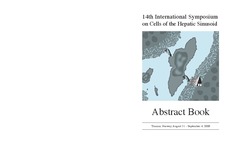Can we rely on simulated patients' satisfaction with their consultation for assessing medical students' communication skills? A cross-sectional study
Permanent lenke
https://hdl.handle.net/10037/8835Dato
2015-12-18Type
Journal articleTidsskriftartikkel
Peer reviewed
Forfatter
Gude, Tore; Grimstad, Hilde; Holen, Are; Anvik, Tor; Baerheim, Anders; Fasmer, Ole Bernt; Hjortdahl, Per; Vaglum, Per Jørgen WiggenSammendrag
Methods: This was a comparative cross-sectional study of 62 videotaped consultations in a general practice setting with young doctors who were finishing their internship. The SPs played a female patient who had observed blood when using the toilet, which had prompted a fear of cancer. Immediately afterwards, the SP rated her level of satisfaction with the consultation, and the scores were dichotomized into satisfaction or dissatisfaction. Professional observers viewed the videotapes and assessed the doctors’ communication skills using the Arizona Communication Interview Rating Scale (ACIR). Their ratings of communication skills were dichotomized into acceptable versus unacceptable levels of competence.
Results: The SPs’ satisfaction showed a predictive power of 0.74 for the observers’ assessment of the young doctors and whether they reached an acceptable level of communication skills. The SPs’ dissatisfaction had a predictive power of 0.71 for the observers’ assessment of an unacceptable communication level. The two assessment methods differed in 26 % of the consultations. When SPs felt relief about their cancer concern after the consultation, they assessed the doctors’ skills as satisfactory independent of the observers’ assessment.
Conclusions: Accordance between the dichotomized SPs’ satisfaction score and communication skills assessed by observers (using the ACIR) was in the acceptable range. These findings suggest that SPs’ satisfaction scores may provide a reliable source for assessing communication skills in educational programs for medical trainees (students and young doctors). Awareness of the patient’s concerns seems to be of vital importance to patient satisfaction.
Beskrivelse
Forlag
BioMed CentralSitering
BMC Medical Education 2015, 15:225Metadata
Vis full innførselSamlinger
Relaterte innførsler
Viser innførsler relatert til tittel, forfatter og emneord.
-
Influence of environmental tonicity changes on lipophilic drug release from liposomes
Nikolaisen, Trygg Einar (Mastergradsoppgave; Master thesis, 2018-05-15)Introduction: Liposomes as drug delivery systems has been widely studied as a way to solubilize poorly soluble drugs, reduce side effects of chemotherapeutics and increase circulation time in vivo. Since the first descriptions of liposomes over 60 years ago, they have shown tendencies to shrink and swell when the external environment of the liposomes is altered. This phenomenon has been studied in ... -
Prognostic Impacts of Angiopoietins in NSCLC Tumor Cells and Stroma : VEGF-A Impact Is Strongly Associated with Ang-2
Andersen, Sigve; Dønnem, Tom; Al-Shibli, Khalid Ibrahim; Al-Saad, Samer; Stenvold, Helge; Busund, Lill-Tove; Bremnes, Roy M. (Journal article; Tidsskriftartikkel; Peer reviewed, 2011)Angiopoietins and their receptor Tie-2 are, in concert with VEGF-A, key mediators in angiogenesis. This study evaluates the prognostic impact of all known human angiopoietins (Ang-1, Ang-2 and Ang-4) and their receptor Tie-2, as well as their relation to the prognostic expression of VEGF-A. 335 unselected stage I-IIIA NSCLC-patients were included and tissue samples of respective tumor cells and ... -
14th International Symposium on Cells of the Hepatic Sinusoid
Smedsrød, Bård (Book; Bok, 2008-08-31)Abstract book of the symposium


 English
English norsk
norsk


